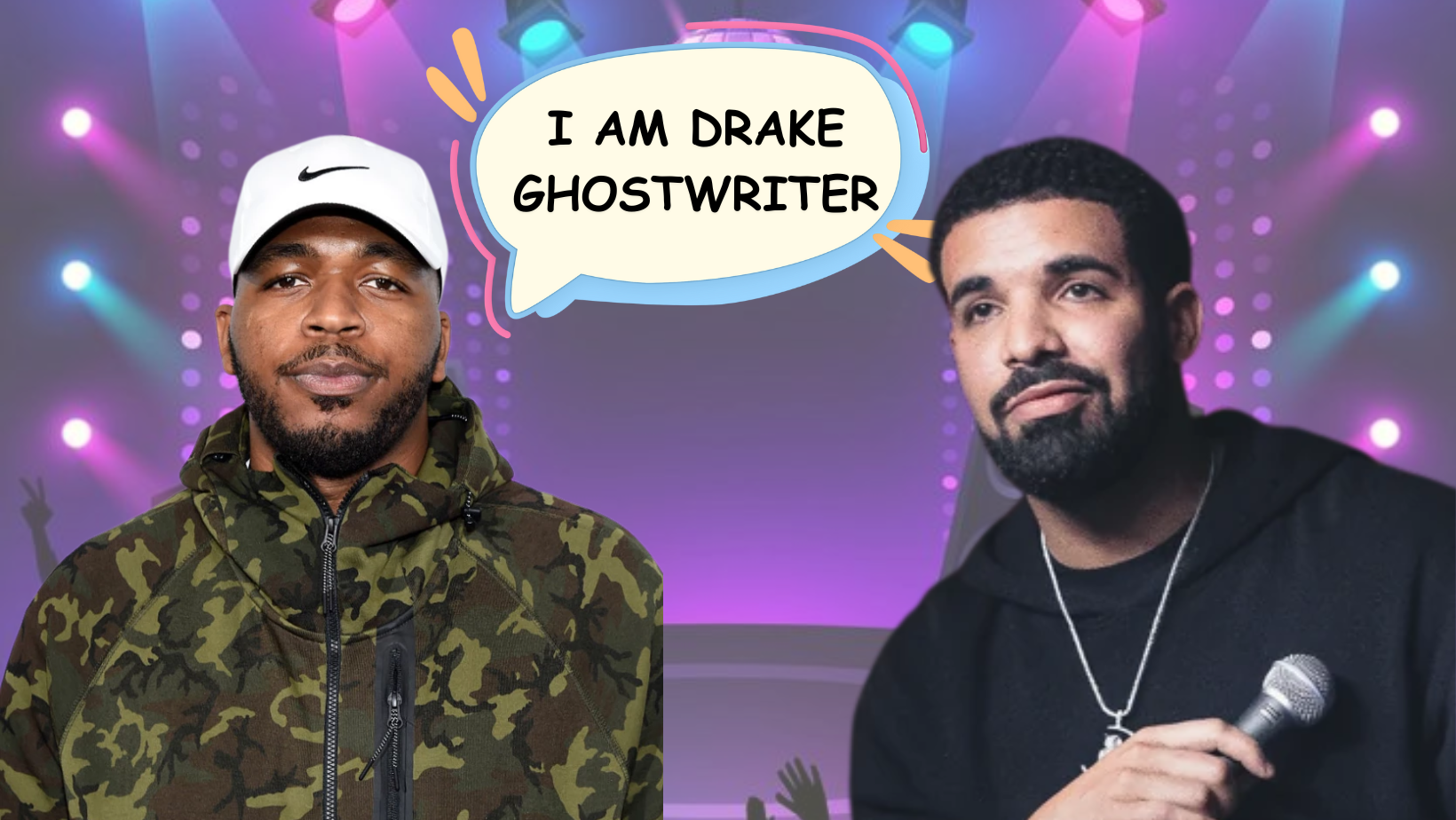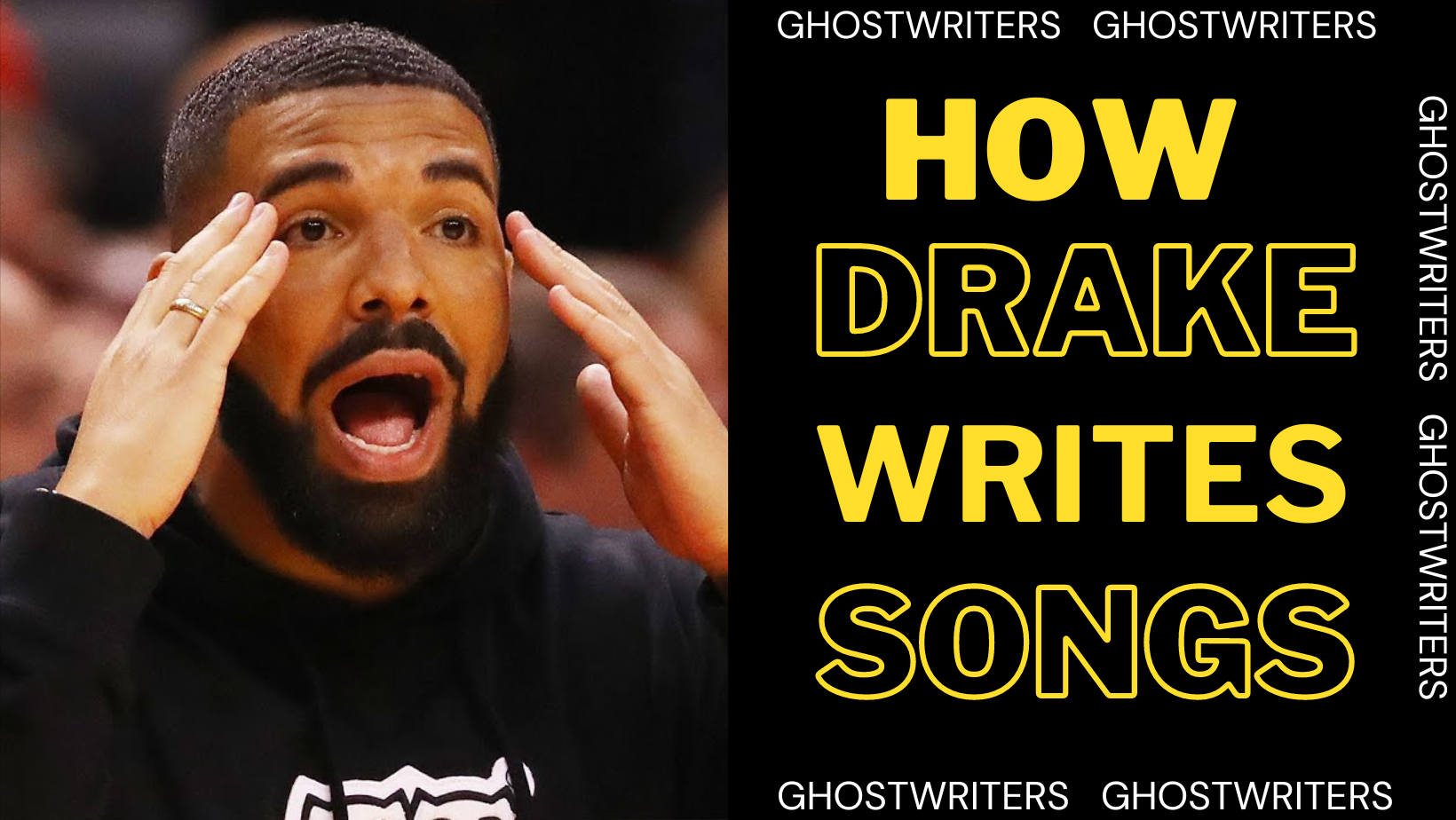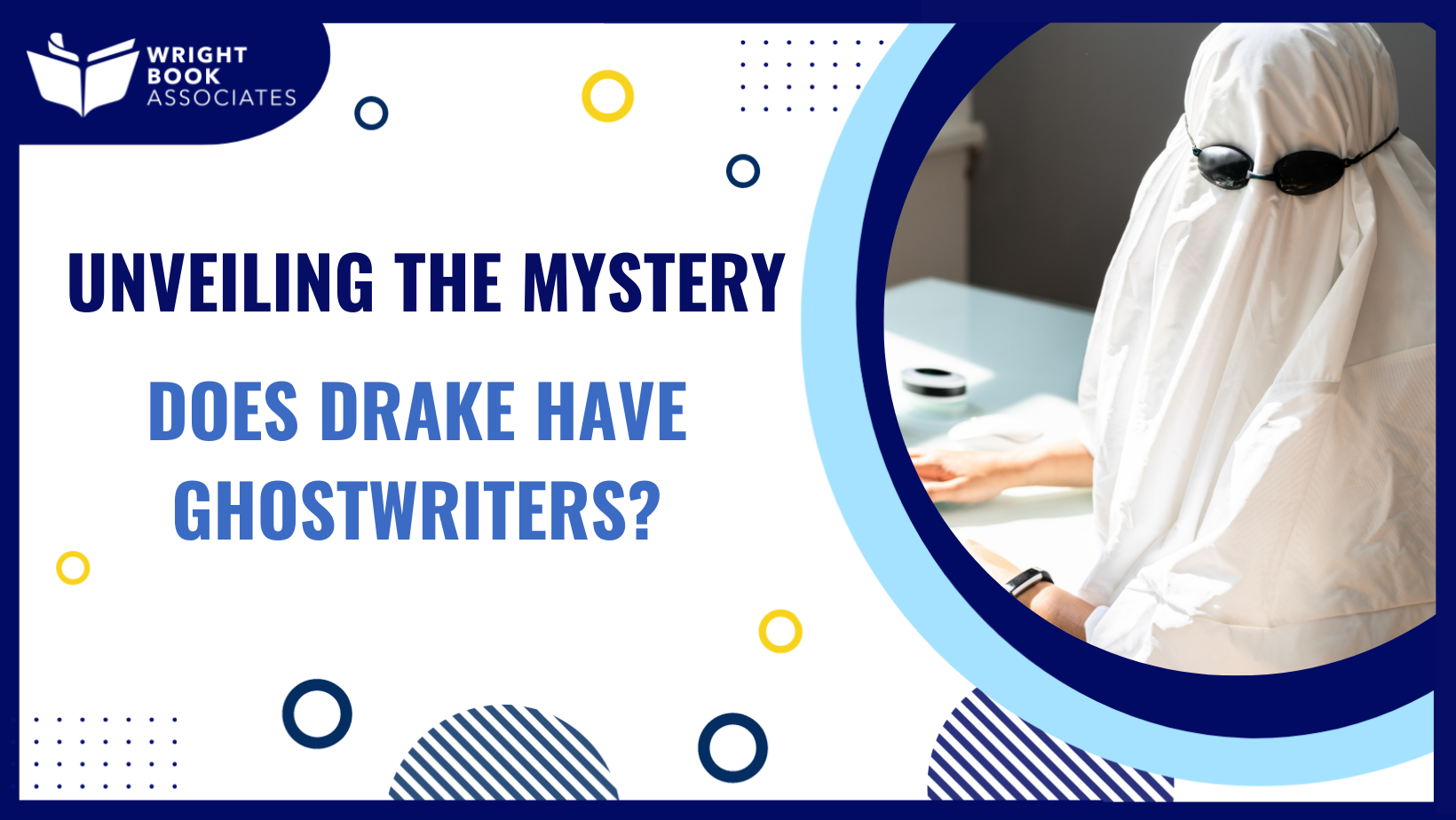You may have wondered, Does Drake have ghostwriters? This question has lingered in the music industry, igniting debate among fans and critics alike. Throughout his career, he has collaborated with various artists, leading to speculation about whether he uses ghostwriters like Quentin Miller. In this post, we will explore the evidence surrounding does Drake have ghostwriters, analyse songs that sparked these allegations, and investigate who Drake’s ghostwriters might be. By the end, you’ll have a clearer understanding of the role of ghostwriters in Drake’s impressive catalogue.
Key Takeaways:
- Debate Over Ghostwriting: The question of does Drake have ghostwriters has been a prominent topic in discussions about authenticity in hip-hop, particularly after the revelation that Drake ghostwriter Quentin Miller contributed to some of his work.
- Collaborative Approach: While some argue that Drake diminishes his talent, others see his collaborations as part of the music industry’s standard practice.
- Public Perception: Fans are divided on whether the involvement of other writers in Drake ghostwriter songs affects their appreciation of his artistry, and many still ponder who is Drake’s ghostwriter beyond Quentin Miller, leading to a broader discussion about the ghostwriters in the music industry.
Understanding Ghostwriting in the Music Industry
Before diving deeper into whether or not Drakes has ghostwriters, it’s necessary to grasp the concept of ghostwriting in the music industry. Many artists, including those at the pinnacle of their careers, often collaborate with writers to enhance their creative output. Ghostwriting allows artists to focus on their melodies and performances while entrusting the lyrics to skilled wordsmiths.
Definition of Ghostwriting
Understanding ghostwriting involves recognizing that it refers to the practice where a writer creates content for another artist without receiving public credit. In music, this means penning lyrics or verses that the performing artist presents as their own work.
Historical Context of Ghostwriting
An exploration of the historical context of ghostwriting reveals that this practice has existed for decades, if not centuries. From the golden age of jazz to contemporary pop and hip-hop, many artists have acknowledged contributions from various writers, influencing the evolution of musical genres.
For instance, well-known stars like Elvis Presley and Frank Sinatra regularly employed songwriters to create hits that defined their careers. This trend continued with iconic groups like The Beatles, who, despite their famed songwriting abilities, often collaborated with others behind the scenes. Thus, you can see that the concept of ghostwriting is deeply embedded in the music industry’s fabric. When considering whether does Drake have ghostwriters, it’s important to remember this broader tradition of collaboration.
List of Drake Ghostwriters
Who is Drake’s ghostwriter? Over the years, several songwriters and artists have been rumoured to have ghostwritten for Drake. The most prominent names include:
- Quentin Miller: Perhaps the most well-known alleged ghostwriter for Drake.
- PARTYNEXTDOOR: An artist and songwriter from Drake’s OVO Sound label.
- The Weeknd: Another OVO Sound artist who has been rumoured to have contributed to Drake’s work.
- Rhymefest: A lesser-known figure in the discussion, but still a part of the rumour mill.
- Jay-Z: Though more of a collaborative effort, there have been speculations about his input in some of Drake’s lyrics.
The Quentin Miller Controversy: A Turning Point

The year 2015 marked a turning point in Drake ghostwriter Quentin Miller writing saga. A controversy erupted, centred around rapper Quentin Miller, who was accused of being Drake’s ghostwriter for the mixtape “If You’re Reading This It’s Too Late.” Leaked reference tracks, allegedly created by Miller, surfaced online, bearing striking similarities to songs on Drake’s project.
Suddenly, the whispers about Drake’s lyrical authenticity transformed into a full-blown public debate.
The “Quentin Miller” incident became a flashpoint, thrusting the question of ghostwriting into the spotlight. While some saw it as undeniable evidence of Drake’s ghostwriter using his own work, others argued that these were simply reference tracks, a common practice in the industry where artists collaborate and refine ideas.
The distinction between a reference track and ghostwriting lies in the level of authorship. A reference track is a tool for creative exploration, a starting point for a song. A ghostwriter, on the other hand, writes lyrics that are ultimately attributed to someone else.
The Quentin Miller controversy sparked a heated discussion, throwing fuel onto the fire of the ongoing debate. While it may not have provided conclusive evidence of ghostwriting, it undoubtedly raised serious questions about Drake’s songwriting process and the role of collaboration in his music.
The incident also highlighted the complexities of authorship in a collaborative industry, where lines between inspiration, collaboration, and ghostwriting can blur.
This controversy, however, was just the beginning.
Drake’s Artistic Approach

While the debate about whether Drake has ghostwriters continues to intrigue fans and critics alike, understanding his artistic approach sheds light on his creative process. With a unique blend of personal storytelling, collaborations, and a distinct songwriting methodology, you can see how Drake navigates the complex landscape of the music industry while maintaining his authenticity.
Collaborations with Other Artists
With numerous collaborations throughout his career, Drake frequently partners with various artists, enhancing his sound and lyrical depth. These collaborations not only showcase his versatility but also reflect the influence of other musicians, blurring the lines about whether Drake uses ghostwriters. You might wonder how this dynamic impacts his artistry.
Drake’s Songwriting Process
Other than collaborations, Drake’s songwriting process plays a crucial role in shaping his music. He often draws upon input from fellow artists and producers.Understanding how ideas are shared and transformed within this collaborative framework can provide insight into the final product you hear on the radio.
Approach to songwriting for Drake involves a blend of personal narratives and team collaboration. He often starts with a concept and then engages with other creative minds like producers and writers to refine his ideas. This intricate process could support claims that Drake uses ghostwriters, yet it is necessary to recognize the valuable contributions he makes throughout, ensuring the final message remains his own.
The Influence of Personal Experiences on Lyrics
Lyrics in Drake ghostwriter songs often reflect his personal experiences, adding layers of authenticity to his work. As you listen, you’ll notice how his life events, struggles, and successes manifest in his lyrics, contributing to the ongoing debate of whether does Drake have ghostwriters or if the essence of his storytelling is purely his.
A significant aspect of Drake’s lyrical content is the authenticity derived from his real-life experiences. His ability to translate personal moments into relatable songs resonates deeply with listeners, making you feel connected to his narratives. This authenticity raises questions about the role of ghostwriters in his career, especially given the sincerity present in his storytelling. While some might argue that the presence of ghostwriters diminishes this authenticity, it’s clear that Drake’s personal touch remains prominent in his music.
Evidence of Ghostwriting in Drake’s Work
For many music enthusiasts, use of ghostwriters by Drake has sparked intense discussions. The evidence surrounding this topic can be categorised into various facets, including notable writing credits, public statements from collaborators, and the impact of social media discourse.
Songs with Notable Writing Credits
With tracks like “Jumpman” and “What a Time to Be Alive,” you may notice several writing credits attributed to other artists on the album’s liner notes. This suggests that while Drake is a talented lyricist, he does often collaborate with others, leading to the question of whether he employs ghostwriters in his work.
Public Statements by Collaborators
Any discussion around whether or not Drake uses ghostwriters isn’t complete without examining the comments made by those who have worked closely with him.
Ghostwriting in the music industry isn’t uncommon, and collaborators like Quentin Miller have openly discussed their roles in helping shape Drake’s sound. Miller was notably credited on some of Drake’s biggest tracks, prompting speculation about how much influence he had. This raises questions regarding the extent of Drake’s personal input and whether he still uses ghostwriters for his music today.
Social Media and Its Role in the Discourse
Social media plays a significant role in the debate over whether Drake has ghostwriters, as fans often take to platforms like Twitter and Instagram to express their opinions.
Another aspect to consider is how social media amplifies rumors and allegations. Your engagement with these platforms can reveal a plethora of opinions, memes, and debates surrounding ‘*does Drake have ghostwriters*’, contributing to the public perception of his artistry. Whether through trending hashtags or viral posts, discussions can inadvertently shape your understanding of the facts—and misconceptions—about Drake’s writing process.
The Controversy Surrounding Ghostwriting
Unlike many artists, the debate over whether Drake employs ghostwriters has sparked intense discussions in the music community. Whether you appreciate his artistry or not, you can’t deny that the idea of ghostwriting taints the authenticity of an artist’s work. As fans examine deeper into this controversy, it raises the question: does Drake have ghostwriters? This chapter explores various perspectives surrounding the issue, from industry reactions to fan opinions.
Industry Reactions to Ghostwriting Allegations
For many in the music industry, the use of ghostwriters is both a controversial topic and a common practice. While some argue that it undermines an artist’s credibility, others recognize it as a necessary component of a collaborative art form. Notably, the allegations that Drake utilizes ghostwriters have prompted discussions on integrity versus innovation within the music industry.
Fans’ Perspectives
Allegations surrounding Drake’s ghostwriting have stirred diverse reactions among fans. While some fans remain unfazed and continue to support his music, others express feelings of betrayal and disappointment, questioning the authenticity of the lyrics that resonate with them.
Ghostwriting can create a rift in how fans perceive the artist’s message. If you find yourself invested in Drake’s narrative, the idea that someone else may be crafting his lyrics can be disheartening. It leads many to wonder whether the emotions conveyed in his music genuinely belong to him or are merely a collaborative effort, which can ultimately affect your connection to his artistry.
The Impact of Ghostwriting on Credibility
Allegations regarding ghostwriting raise significant questions about an artist’s credibility. If you’re wondering, does Drake have ghostwriters, the implications can be far-reaching. Knowing that a prominent figure like Drake might rely on others to write his lyrics can shift your perception of him as a musician.
Reactions to Drake’s ghostwriting allegations can vary, but they ultimately affect your trust in the artist. If you see him as a storyteller, the idea of other voices shaping his narrative can dilute your appreciation of his work. This ambiguity surrounding who pens his lyrics can lead you to question his authenticity and artistic merit in the expansive music industry, where the line between collaboration and ghostwriting often blurs.
Notable Collaborators and Contributors
A closer examination of his notable collaborators and contributors reveals a complex web of creative partnerships that have shaped his sound and success.
Overview of Major Contributors
Major contributors to Drake’s discography include prominent figures like Quentin Miller, PartyNextDoor, and Mike Zombie, each bringing their unique flair to the studio. These artists have co-written multiple tracks, raising eyebrows and fueling the ongoing debate about whether Drake uses ghostwriters or not.
Key Songs Produced by Collaborators
An analysis of key songs produced by these collaborators indicates that while Drake may pen his lyrics, he often relies on creative input from his team. Tracks like “Jumpman” and “Know Yourself” showcase the distinct contributions of skilled collaborators, further complicating the narrative around the question of whether Drake has ghostwriters.
Collaborators such as Quentin Miller and PartyNextDoor have undoubtedly left their mark on some of Drake’s biggest hits. Songs like “Used to” and “Summer Sixteen” illustrate how their contributions can shape the overall direction and feel of a track, leading fans to wonder about the extent of their impact on Drake’s songwriting process.
The Role of Producers in Songwriting
Songs produced for Drake often highlight the significant role that producers play in the songwriting process. While some may label these contributions as ghostwriting, it’s crucial to recognize that producers often help refine lyrics and structure, which can blur the lines for those questioning the authenticity of Drake’s artistry.
To truly understand the role of producers in Drake’s work, you need to consider how their involvement can transform a song. Producers like Noah “40” Shebib and Boi-1da contribute not only instrumentals but also lyrical guidance, making it crucial to differentiate between co-writing and ghostwriting. This discussion ultimately leads back to the central query—does Drake have ghostwriters? The collaborative nature of the music industry means that the lines may be more blurred than you might initially think.
The Broader Implications of Ghostwriting
Despite the ongoing debate surrounding whether Drake has ghostwriters, the implications of ghostwriting extend far beyond one artist. The use of ghostwriters challenges traditional notions of authorship, creativity, and authenticity in the music industry.
Changing Landscape of Hip-Hop and Rap
One of the most significant shifts in hip-hop and rap has been the increasing acceptance of collaboration, including ghostwriting. Artists today often rely on a team of writers, producers, and collaborators to enhance their music, leading to a more diverse and innovative soundscape.
Comparisons with Other Genres
Other genres of music, such as pop and R&B, frequently utilize ghostwriters to create chart-topping hits. The practice is not limited to a specific genre, but rather reflects a broader trend of collaboration within the industry.
Comparisons with Other Genres
| Genre | Use of Ghostwriters |
| Hip-Hop/Rap | Increasing acceptance, collaboration is common |
| Pop | Widespread use to create catchy hits |
| R&B | Often employs writers for lyrical depth |
For instance, numerous pop icons, including major stars like Beyoncé and Britney Spears, often rely on songwriters to craft their hits. This practice brings attention to the question of how much of an artist’s identity is tied to the lyrics they perform and who truly deserves credit for the work produced.
The Future of Authorship in Music
To understand the future of authorship in music, it’s crucial to recognize the evolving landscape shaped by technology and collaboration. As digital platforms grow in prominence, artists are more inclined to share credit with a team rather than claim sole authorship.
Understanding these dynamics will enable you to grasp the complexity of musical creation today. As the lines between collaboration and individual artistry blur, the question “does Drake have ghostwriters?” may become less about specific artists and more about the industry as a whole. Additionally, you must consider how these changes influence your perception of an artist’s authenticity and the creative process behind their work, including Drake’s collaborations with notable ghostwriters like Quentin Miller.
Common Misconceptions About Song Ghostwriting
An important misconception about ghostwriting is that it undermines an artist’s talent or authenticity. Many people assume that if an artist uses a ghostwriter, they are somehow less skilled or genuine in their craft, which could affect considerations like whether or not does Drake use ghostwriters.
Plus, it’s crucial to understand that many artists view ghostwriting as a collaborative effort that enhances their work rather than detracts from it. You need to recognize that just because someone contributes to lyrics does not diminish the artist’s creativity or connection with their music. In reality, many musicians have thriving partnerships with writers, enabling them to deliver a polished and resonant final product. As you explore the topic of does Drakes have ghostwriters, remember that collaboration is a common, valuable aspect of music-making.
Final Words
Drawing together the threads of this intriguing discussion on whether does Drake have ghostwriters, you now have a clearer understanding of the complexities involved. While allegations suggest that Drake may have collaborated with ghostwriter Quentin Miller and possibly others, it’s important to differentiate between collaboration and outright ghostwriting. You’ve learned that does Drake still use ghostwriters remains a topic of debate in the music industry. Ultimately, assessing his work requires you to consider the nature of creative collaboration, artistry, and originality within his extensive catalog of songs.

